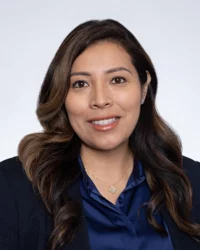The availability of 24-hour medical care regardless of preexisting conditions, illness, and cause of injury could soon be available in California. With the inception of the Affordable Care Act in 2014 and the subsequent threat of its repeals, healthcare has been at the forefront of the policy debates in California and across the country: in particular, what the future of healthcare would look like in California and the implication that this could have on the California Workers’ Compensation system.
In 2017, California lawmakers made their most recent effort to tackle the healthcare problem with the introduction of the Senate Bill 562. Senate Bill 562, or “The Healthy California Act”, was modeled after the federal legislation, which seeks to implement a single-payer system. A single payer system could essentially seek to do away with private health insurance and replace it with a government funded program.
A notable implication of this type of program is that it could lead to the incorporation of both occupational and non-occupational medical care into one healthcare system. As it stands, the access of medical care for occupational injuries has led the California workers’ compensation system to evolve over time through legislative reform to meet the specific specialized needs of individuals suffering from work related injuries or illnesses. One of the problematic aspects of an integrated system is that it could fail to address many of the benefits that are extended to patients with occupational conditions.
The workers’ compensation system provides additional benefits above and beyond treatment, such as vocational training, temporary disability and permanent disability benefits. While access to medical care may still be available to injured workers under a single-payer government funded system, our current system also accounts for lost wages. These additional benefits have yet to be addressed under the proposed legislation.
If a single-payer system is sold to Californians as greater access to medical care for all eligible residents at a lower cost, it would leave little to no room for the additional benefits now available under our current workers’ compensation system. Therefore, there would still need to be yet another separate system in place to address these issues. The need to keep a separate system to adjudicate occupational injuries would not likely result in the lower cost system being proposed. To the contrary!
The California Workers’ Compensation Institute conducted a study entitled Revisiting 24-Hour Health Care Coverage and Its Integration with the California Workers’ Compensation System, finding that “the California workers’ compensation system makes up approximately 2 percent of the overall health care economy.” This leaves very little incentive for lawmakers to address the potential pitfalls that would result for the workers’ compensation system as the result of a shift to a single-payer system.
It is still unclear what the future of SB 562 will be in California. The appeal of a comprehensive healthcare system at first glance appears to be beneficial for everyone. However, it is important for lawmakers to consider and address the clear difference in policies, regulations and overall purpose of a general healthcare system and a workers’’ compensation system before moving forward.
Karen P. Mejia is an associate attorney at Bradford & Barthel’s Los Angeles location. In addition to her background in the defense of employer rights, Ms. Majia’s vast experience includes work at Israeli Ministry of Justice in Tel Aviv, Israel, Vice Chair of National Latina/o Law Students Association and President of the Hispanic Law Student Association. Ms. Mejia can be reached at kmejia@bradfordbarthel.com or (310) 981-5004.
Viewing this website does not form an attorney/client relationship between you and Bradford & Barthel, LLP or any of its attorneys. This website is for informational purposes only and does not contain legal advice. Please do not act or refrain from acting based on anything you read on this site. This document is not a substitute for legal advice and may not address every factual scenario. If you have a legal question, we encourage you to contact your favorite Bradford & Barthel, LLP attorney to discuss the legal issues applicable to your unique case. No website is entirely secure, so please be cautious with information provided through the contact form or email. Do not assume confidentiality exists in anything you send through this website or email, until an attorney/client relationship is formed.


